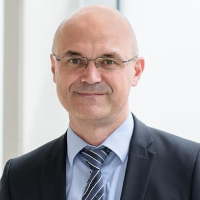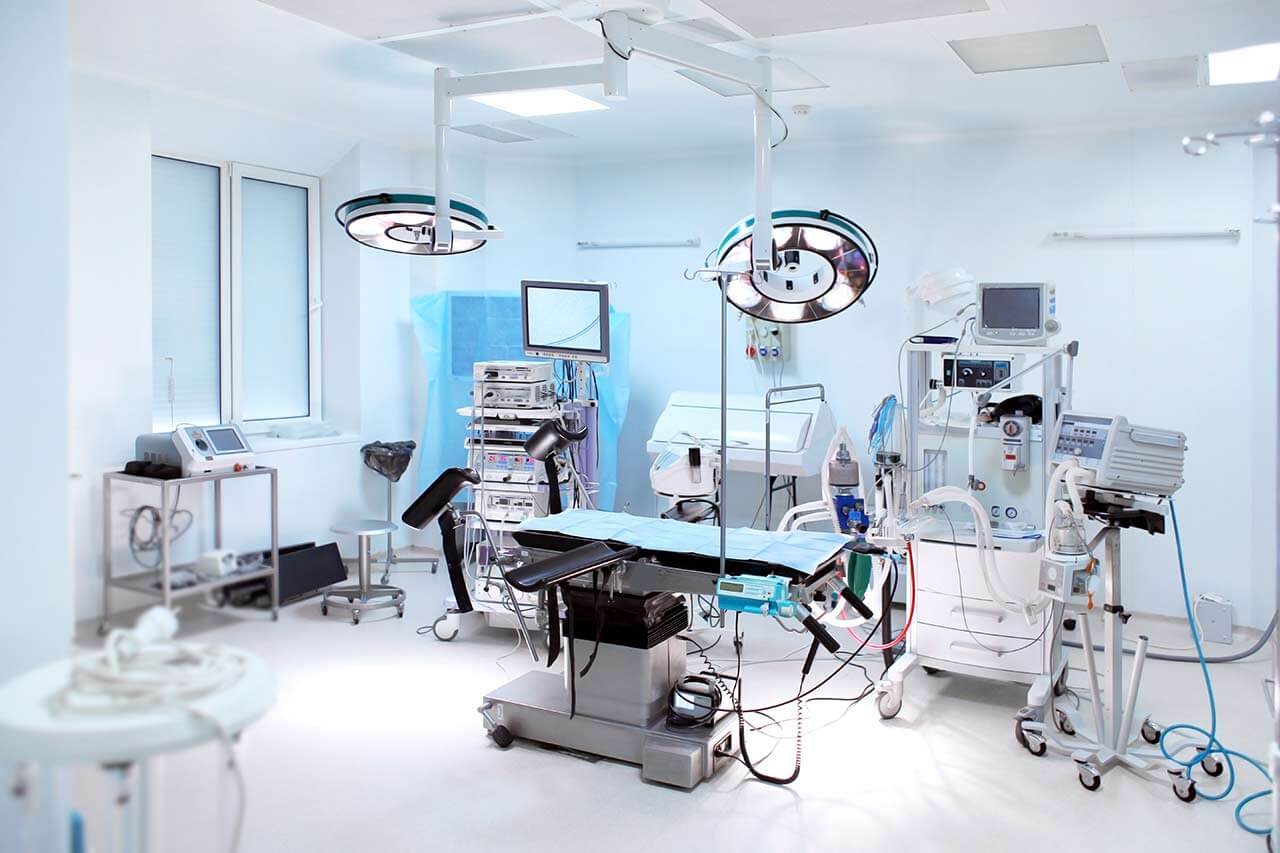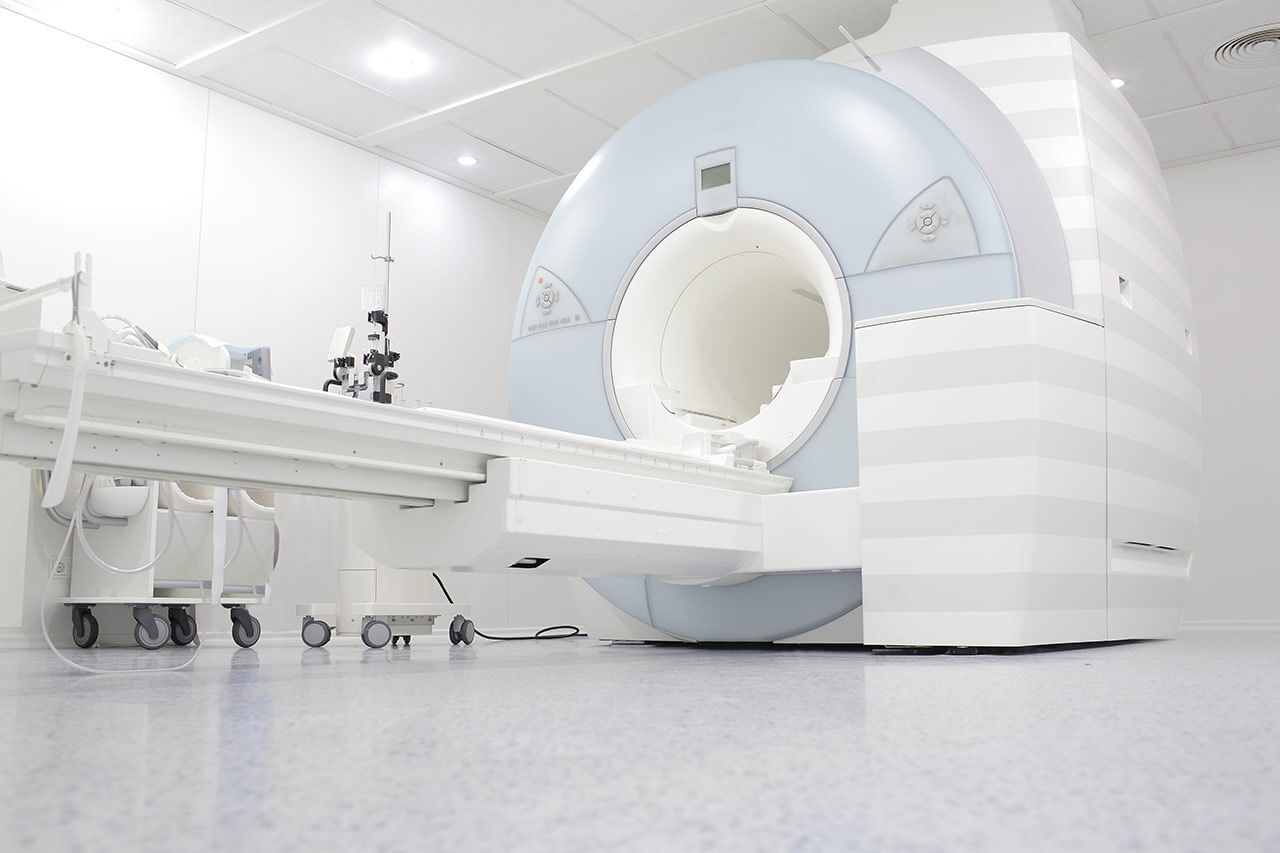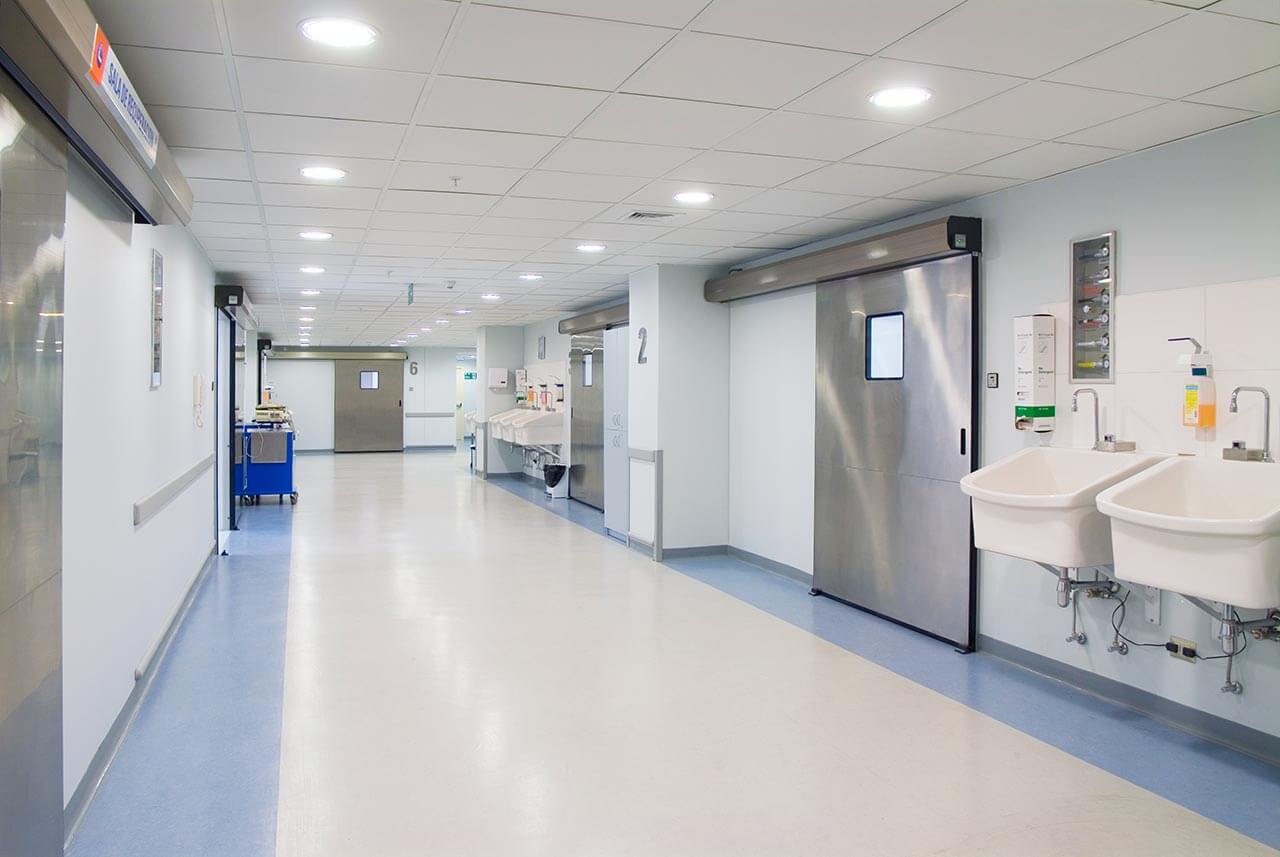
The program includes:
- Initial presentation in the clinic
- clinical history taking
- review of medical records
- physical examination
- laboratory tests:
- complete blood count
- general urine analysis
- biochemical analysis of blood
- inflammation indicators (CRP, ESR)
- indicators blood coagulation
- tumor marker
- CT planning of radiation therapy
- a full course of intensity-modulated radiation therapy (IMRT)
- symptomatic treatment
- the cost of essential medicines and materials
- nursing services
- control examinations
- consultation of related specialists
Required documents
- Medical records
- MRI/CT scan (not older than 3 months)
- Biopsy results (if available)
Service
You may also book:
 BookingHealth Price from:
BookingHealth Price from:
About the department
According to the prestigious Focus magazine, the Department of Adult and Pediatric Radiation Therapy at the University Hospital Halle (Saale) is one of the best medical facilities in Germany in its area of specialization!
The physicians of the department pay special attention to the treatment of malignant diseases such as breast cancer, prostate cancer, lung cancer, brain cancer, colon cancer, and other tumors. The specialists of the medical facility are also competent in performing radiation therapy for benign diseases with a special emphasis on the treatment of lateral epicondylitis, arthrosis, and heel spurs. The department has state-of-the-art equipment, including a CT scanner, two linear accelerators, a MicroSelectron HDR machine for short-term high-dose irradiation (Afterloading therapy), Oncentra External Beam and Oncentra Brachy machines for irradiation planning, and the iPlan system (Brainlab) for stereotactic irradiation planning. The department performs all types of radiation therapy available in modern medicine. Treatment is performed on an outpatient basis without hospitalization. Each radiation therapy regimen is planned according to the individual needs and wishes of each patient. The department's physicians work with advanced equipment that ensures effective results and high radiation safety. The department is headed by Prof. Dr. med. Dirk Vordermark.
The therapeutic process begins with careful radiation therapy planning using advanced computerized equipment such as Oncentra External Beam, Oncentra Brachy, and iPlan (Brainlab). These systems display the parameters of all linear accelerators used in the department. The basis for creating a radiation therapy program are CT scans. The physician marks the required radiation volume on the tomogram and determines the dose and maximum allowable exposure to critical organs such as the lungs, kidneys, and spinal cord. Specially trained medical physicists then develop an individualized treatment plan. In complex clinical cases, the department's specialists create several alternative radiation therapy regimens, compare them, and select the optimal option for the patient that will achieve the best outcome.
When the department's physicians irradiate head and neck tumors, a special stereotactic head frame is made at the stage of preparation for radiotherapy that enables precise positioning of the patient during the session, which plays an important role in the success of the treatment.
In most cases, one radiation therapy session is performed per day for 5 days a week – this is an intensive course of treatment. A radiation session usually lasts only 10-15 minutes. Immediately prior to the treatment, control CT scans are done to verify the correct position of the patient on the linear accelerator table. Markers are then placed on the patient's skin or on the stereotactic head frame to guide the beam with high precision directly to the pathological focus and to protect adjacent healthy tissues from irradiation. Radiation therapy is performed on an outpatient basis.
A course of radiation therapy for benign diseases usually consists of 6 sessions lasting only a few seconds and is performed over 2 weeks. Radiation therapy for benign diseases does not cause any serious side effects, so the doctors of the department may recommend a repeat course of radiation after 6-8 weeks to consolidate the result.
The department also offers chemoradiation therapy. This treatment is usually performed in the hospital under medical supervision. Chemoradiotherapy is indicated for patients with head and neck cancer, brain cancer, esophageal cancer, rectal cancer, lung cancer, uterine cancer, etc. In many cases, the course of chemoradiotherapy is supplemented with immunotherapy and supportive care to reduce the side effects of the basic course of treatment.
The department specializes in radiation therapy for the following diseases:
- Malignant diseases
- Breast cancer
- Lung cancer
- Brain cancer
- Prostate cancer
- Bladder cancer
- Uterine cancer
- Vaginal cancer
- Colon cancer
- Anal cancer
- Head and neck tumors: oral, pharyngeal, and laryngeal cancers
- Leukemia
- Lymphomas
- Sarcomas
- Malignant tumors in children and adolescents
- Benign diseases
- Lateral epicondylitis
- Arthrosis
- Heel spur
- Other diseases
The department offers the following types of radiation therapy:
- Intensity-modulated radiation therapy
- Volumetric modulated arc therapy
- Deep inspiration breath hold
- Stereotactic radiation therapy
- Brachytherapy
- Chemoradiation therapy
- Total body irradiation
- Other types of radiation therapy
Curriculum vitae
Higher Education, Postgraduate Training, and Professional Career
- 1990 - 1995 Medical studies, University of Luebeck.
- 1995 - 1996 Medical studies, University of Ulm; special courses in Goeppingen (internal medicine), Zurich (surgery) and Pretoria, South Africa (radiology and radiation therapy).
- 1996 - 2000 Intern and Research Fellow, Department of Radiation Therapy, University Hospital Wuerzburg.
- 2001 One-year research fellowship (postdoctoral fellowship), grant of the German Research Foundation (DFG), Department of Radiation and Oncology Biology, Stanford University, California, USA.
- 2002 - 2008 Research Fellow, Department of Radiation Therapy, University Hospital Wuerzburg.
- 2003 Board certification in Radiation Therapy; Senior Physician, Department of Radiation Therapy, University Hospital Wuerzburg.
- 2004 Habilitation in radiotherapy and appointment as Associate Professor, University of Wuerzburg. Subject: "The effect of acute and chronic hypoxia on the radiation resistance of human tumor cells: studies using HIF-1 dependent markers of endogenous hypoxia."
- Since 2008 Head Physician, Department of Adult and Pediatric Radiation Therapy, University Hospital Halle (Saale).
- Since 2011 Physician, Medical Center (MVZ), University Hospital Halle (Saale).
- 2012 - 2018 Vice Dean for Research, Faculty of Medicine, Martin Luther University Halle-Wittenberg.
- 2013 - 2018 Representative of the Dean, Faculty of Medicine, Martin Luther University Halle-Wittenberg.
Clinical Interests
- High-precision radiotherapy (radiosurgery and fractionated stereotactic radiotherapy) for brain, lung, liver, spinal tumors, etc.).
- Radiation therapy brain and spinal cord tumors.
- Intensity-modulated radiation therapy, high-dose rate and low-dose rate brachytherapy for prostate cancer.
- Radiation therapy for lung tumors, gastrointestinal tumors, gynecological tumors, and skin tumors.
- Palliative radiotherapy.
- Combination chemoradiation therapy.
Research Interests
- Side effects, late effects, and the quality of life after radiation therapy.
- Radiation therapy for cancer in elderly patients.
- Radiation and oncology biology (tumor microenvironment, tumor oxygenation, hypoxic radiation resistance markers, targeting, and immuno-oncology): molecular radiation biology and translational research.
- High-precision radiation therapy for brain tumors.
- Radiation therapy for childhood cancer, especially Hodgkin lymphoma.
- Radiation therapy for prostate cancer, including brachytherapy.
- Radiation therapy for gynecological cancer.
- Radiation therapy for skin cancer.
- Palliative radiation therapy.
- Supportive care.
Prizes, Awards, and Honors
- 1998 Otto Roth Prize of the Society of Friends and Sponsors of the University of Luebeck for his thesis.
- 1998 Poster Award of the German Society for Radiation Oncology (DEGRO) dedicated to the following: "Definitive radio- (chemo-)therapy for anal cancer: restoration of function and quality of life".
- 2001 Fellowship of the German Research Foundation (DFG), Postdoctoral Fellowship, Stanford University.
- 2002 Fellowship of the European Society for Radiotherapy and Oncology (ESTRO) for teaching the course "Brachytherapy for prostate cancer".
- Hermann Holthusen Prize of the German Society for Radiation Oncology for a PhD dissertation.
- 2005 Varian Clinical Research Award of the European Society for Radiotherapy and Oncology (ESTRO) for the series of works "Tumor hypoxia molecular markers".
- 2006 Poster Prize of the Hanns Langendorff Foundation at the congress of the German Society for Radiation Oncology (DEGRO).
- 2016 GebFra Award for outstanding publications in gynecology and obstetrics.
- 2018 Lilly Quality of Life Award for the project "Assessment and improvement of the quality of life of elderly cancer patients".
Review Activities in Medical Journals
- Editor of the Medical and Radiation Oncology column in BMC Cancer.
- Member of the Editorial Board of Radiotherapy & Oncology.
- Member of the Editorial Board of Radiation Oncology.
- Member of the Editorial Board of Strahlentherapie & Onkologie.
Review Activities for Research Funding Organizations
- German Research Foundation (DFG).
- German Cancer Aid (Deutsche Krebshilfe).
- German Childhood Cancer Foundation.
- Wilhelm Sander Foundation.
- Netherlands Organization for Health Research and Development.
- Netherlands Organization for Scientific Research.
- Swiss National Science Foundation.
Memberships in Professional Societies and Organizations
- European Society for Radiotherapy and Oncology (ESTRO).
- German Society for Radiation Oncology (DEGRO).
- German Cancer Society (DKG).
- Working Group on Radiation Oncology (ARO) of the German Cancer Society (DKG).
- Commission "Uterus" of the Working Group on Gynecology (AGO) of the German Cancer Society (DKG).
- Working Group on Neuro-Oncology (NOA) of the German Cancer Society (DKG).
- Pulmonary Oncology Association (POA) of the German Cancer Society (DKG).
- Society of Pediatric Oncology and Hematology (GPOH).
- Working Group on Pediatric Radiation Oncology (APRO) of the Society of Pediatric Oncology and Hematology (GPOH).
Photo of the doctor: (c) Universitätsklinikum Halle (Saale)
About hospital
According to the prestigious Focus magazine, the University Hospital Halle (Saale) is one of the best medical institutions in Germany!
The history of the hospital goes back more than 300 years, and during this time it has managed to gain an excellent reputation not only in Germany, but also throughout the world. The hospital positions itself as a specialized healthcare facility for the treatment of severe and rare diseases and injuries. The hospital provides medical care to patients of all ages in compliance with the latest scientific achievements. The hospital is distinguished by successful research activities, especially in the field of cardiovascular diseases and oncopathologies – the specialists in these areas have made significant contributions to the development of the very latest diagnostic methods and therapeutic approaches.
The University Hospital Halle (Saale) has 30 specialized departments representing almost all areas of modern medicine, as well as 17 narrowly focused institutes. About 35,000 patients receive qualified medical care of European standards in the hospital every year, and more than 212,000 patients are served on an outpatient basis. This number of patients is evidence of the high efficiency of medical services and the excellent image of the hospital in the international medical arena; patients from all over the world regularly seek medical attention here.
Some of the hospital's structural units deserve special attention. For example, the Central Emergency Department (the largest in Saxony-Anhalt), modern dental clinics, the Perinatal Center, and the Transplant Center, which has a history of more than 40 years. The Transplant Center performs more than 40 kidney transplants annually, most of them from living donors.
Thanks to the use of the latest medical technologies and the availability of state-of-the-art equipment, many previously high-risk surgeries and procedures can now be performed in the hospital using sparing techniques. In this context, hybrid cardiac surgery and robotic surgery using the innovative da Vinci Si® system in urology are worthy of mention.
An integral part of the successful clinical practice of the University Hospital Halle (Saale) is the availability of experienced and competent medical staff. The total number of employees at the hospital is more than 4,450. Many physicians are known far beyond the borders of Germany: they regularly conduct important research that enables the development of modern medicine. In addition, the hospital specializes in training medical students, so qualified doctors and professors are willing to pass on their experience to the younger generation.
The hospital has many quality certificates such as DIN EN ISO 9001:2015 certificate, German Cancer Society (DKG) certificate, JACIE certificate, EndoCert certificate, ClarCert certificate, German Spine Society (DWG) certificate, German Trauma Society (DGU) certificate, CERT iQ certificate, LGA InterCetert certificate, and others.
Photo: (с) depositphotos
Accommodation in hospital
Patients rooms
The patients of the University Hospital Halle (Saale) stay in comfortable single, double, and triple rooms with a modern design. All patient rooms have an ensuite bathroom with a toilet and a shower. The standard patient room includes a comfortable automatically adjustable bed, a bedside table, a wardrobe, a table and chairs for receiving visitors, a TV, a radio, and a telephone. The patient rooms have access to Wi-Fi. For safety reasons, the use of laptops and cell phones is prohibited in some areas, including the intensive care units. The hospital also offers enhanced-comfort patient rooms.
Meals and Menus
The hospital offers delicious and well-balanced meals three times a day: breakfast, lunch, and dinner. Patients and their companions can choose from three daily menus, which always include dietary dishes. If necessary, an individual menu can be prepared for the patient. Children are offered a special menu with healthy and tasty dishes, rich in nutrients necessary for a growing body.
Further details
Standard rooms include:
![]() Toilet
Toilet
![]() Shower
Shower
![]() Wi-Fi
Wi-Fi
![]() TV
TV
Religion
Religious services are available upon request.
Accompanying person
Your accompanying person may stay with you in your patient room or at the hotel of your choice during the inpatient program.
Hotel
Your accompanying person may stay with you in your patient room or at the hotel of your choice during the inpatient program.




